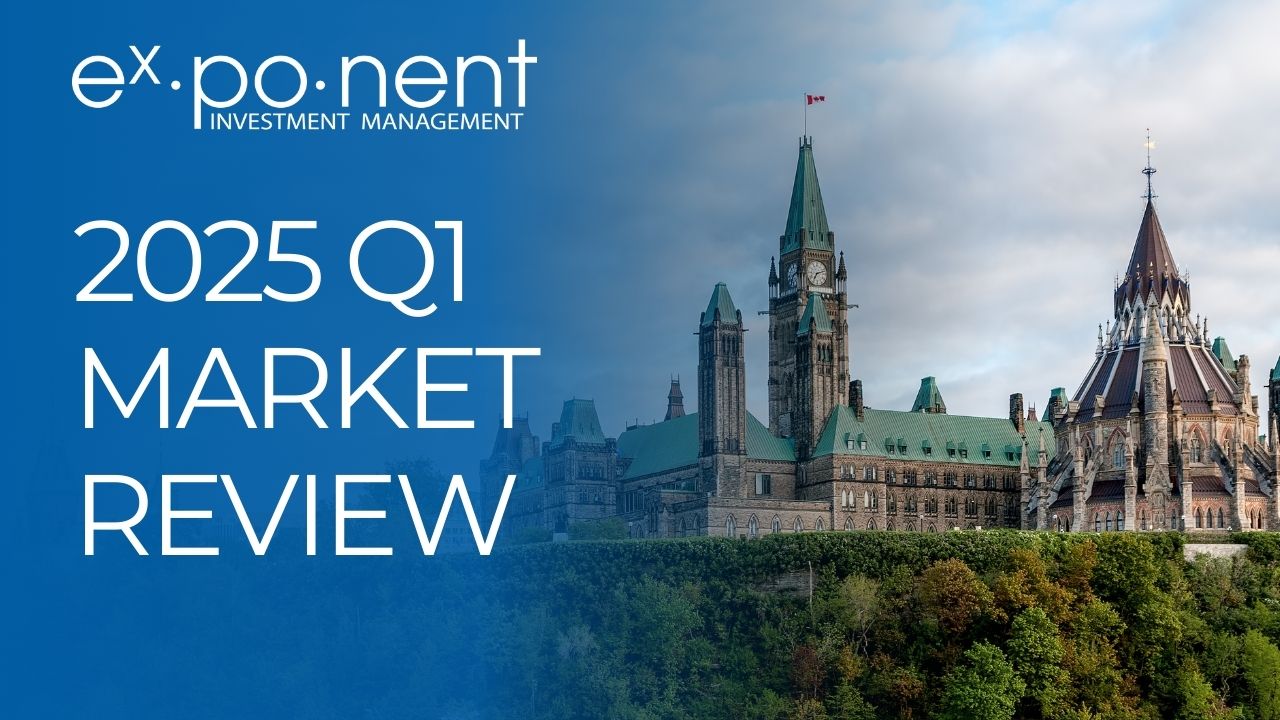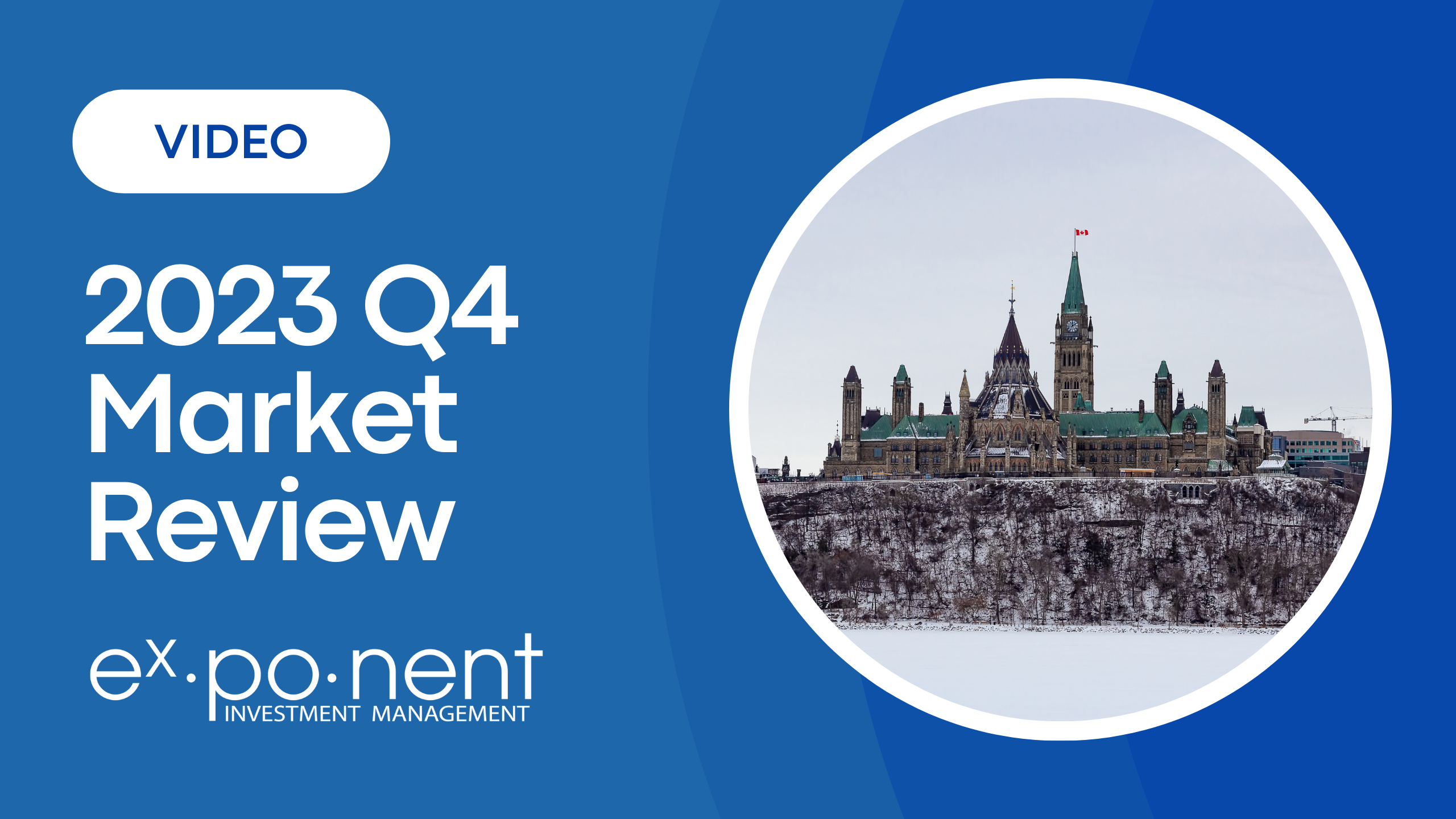
Market Performance and Investment Opportunities — Q4 2025 Review
Overview In our fourth-quarter 2025 review, we reflect on a year that surprised many investors — particularly in Canada — and highlight what continues
Exponent Investment Management Inc. is North Bay’s largest fee-based financial advisor firm. Our certified financial advisors adopt a simple approach that focuses on designing financial services according to the need of our clients.
You have some investments, some RRSPs, a TFSA and money set aside for a rainy day. You’ve managed to get your money working for you, but you know it should be doing more. Between fees, taxes, and missed opportunities, you worry that by the time you get to enjoy your wealth, there will be nothing left.
First and foremost, Exponent is focused on the long-term success and security of your customized portfolio. We want to make sure you are confident and comfortable with your financial future. Our investment strategy, security standards, and service approach are designed to earn your trust, organize your financial efforts and grow your wealth. We’ll pair you with one of our certified financial planners who can deal with your specific financial aspirations and desired level of engagement. Book a 15-minute consultation and we’ll help ascertain a better plan to manage your financial future.
We want to make sure you have an optimized tax strategy. Our financial advisors will provide you with the support you need on both business and personal fronts. Their vast experience in this field will help you achieve your desired financial goals.
Everything in moderation, they say, and this holds true for a healthy portfolio. We make sure you are adequately diversified across asset types, sectors and geographical markets. This will make your portfolio well-balanced and structured, and you stand to benefit from it.
Your financial needs will change over time, and so will the structure of your accounts. We’ll make sure there is a plan in place for now, and when these changes take place down the road. Our financial management services are versatile, which means your accounts can be re-structured with changing financial needs and requirements.
Exponent Investment Management is North Bay’s largest fee-based financial advisor firm. We specialize in comprehensive financial planning, wealth management and retirement planning. We provide a broad range of services including financial planning, investment advisory services, tax services, and financial education.
Exponent is not a sales organization remunerated by product sales, volumes, quotas or the number of generated transactions. Our investment decisions are completely independent and free of biases. Our fees are transparent and generally much lower than retail management products.
Our approach is simple. We design, implement and manage our clients’ portfolios so that they can benefit from Growth & Income with a Global Perspective. Our service is designed to be attentive to the needs of our clients. We continuously invest in technology and education so that our clients benefit from portfolios designed for their goals and aspirations.
Combined, our carefully curated team of consultants has over 100 years of relevant experience, education and accreditation. This unique team of people is the cornerstone of Exponent’s success.
Often, people come to us when dealing with significant wealth for the first time. This wealth could be the result of a very difficult emotional or stressful period (death, health issues, divorce, or the sale of a business). Other times, it is the culmination of a lifelong career, of saving and sacrifice, or a family legacy that they wish to pass on. Regardless of the situation, the dependability of our team’s proven experience and the calibre of our stewardship bring comfort to those with wealth in our care.
Financial Planning is a two-step exercise.
Step 1: Enumerate your income sources and contrast this tally with your expense total. You can work from monthly or annual depending on your situation. Make sure to include those pesky “one-offs” like car repairs, school activities or holidays. Include everything.
Step 2: Inventory all of your assets that will be used or can be potentially used as retirement funds sources such your RRSP, real estate holdings or other investments. You will then want to identify your current as well as future liabilities. These could include your mortgage or future caregiving expenses for a loved one that you expect to be responsible for.
The outcome of this two-step exercise is a tally of your future expenses and expressed a function of your available assets to fund these (as in the sources of the future cash flows). The answer is binary; you either have enough assets vs your expense, or you do not.
It was once said, “a lack of planning is a plan to fail”. Just as you bring a map (or Google Maps) with you on a road trip, you should have some idea where you want your financial journey to end. If you want to end your journey in a comfortable position and enjoy life, it is much easier to do it with a financial plan.
Absolutely. You should start with a financial plan as soon as you get your first job and want to plan for a wedding, your first home or a trip around the world. As you age, your situation will get more complicated. Taxes, estate issues, combined with less time will make most successful investors turn to a professional financial planner. Remember, this is the first time you are doing this, while the planner will have been helping people in your very same situation for years. What you are paying for is his or her experience. Just like I pay a mechanic to change my brakes even though I can watch how-to videos on YouTube, there are certain things that warrant professional advice. The mistakes are just too costly.
You want to work with a financial planner who is familiar with both your current financial situation and the type of financial health you want to achieve. Some planners work with clients who need guidance on budgeting, others will work with divorce cases or exclusively with business owners. All of these situations are unique. Look for a specialist in the specific area that relates to your situation.
The Certified Financial Planner designation is controlled by FP Canada. They ensure that the professionals who obtained this designation have demonstrated a good level of financial planning knowledge through the examination process, and ensure that the holders adhere to a code of ethics conduct and pursue a continuing education path.
That question brings on a whole host of other questions. The short answer is that your savings should be a function of your expected withdrawal from those savings at a later date. Saving is about forgoing current spending now so that you can spend it later. In the meantime, you invest your savings so that they can grow and fund your future spending. However, there are no rules of thumb, hence, you need to go through the financial planning exercise to answer this question.
A good financial planner will ask you for the information they require. The additional information required will be in essence your life plan – How do you want your professional and personal life to unfold? Where does your financial situation fit with this life plan?
Ideally, a financial plan should be reviewed every three years. You should go through the planning exercise, or at least a portion of it every five years or as your personal situation evolves.
Operations Team

Overview In our fourth-quarter 2025 review, we reflect on a year that surprised many investors — particularly in Canada — and highlight what continues

Overview As we wrap up the first quarter of 2025, it’s clear that the market is experiencing a phase of mean reversion. While technology-led U.S.

Peter retired in 2014 at age 60 after a nearly 40-year career with a federal crown corporation. Since then, he has enjoyed an annual income

Should Jim, 66, take advantage of Alberta’s provision to unlock 50 per cent of his locked-in investment retirement account (LIRA) when it converts to a

Executive Summary: Resilience and Recovery in Equity Markets The final quarter of 2023 marked a remarkable period of resilience and recovery for equity markets,

Investing more effectively would put her 30% ahead of her goal, instead of 20% behind, and she could retire earlier, too. Anne-Marie* recently sat down